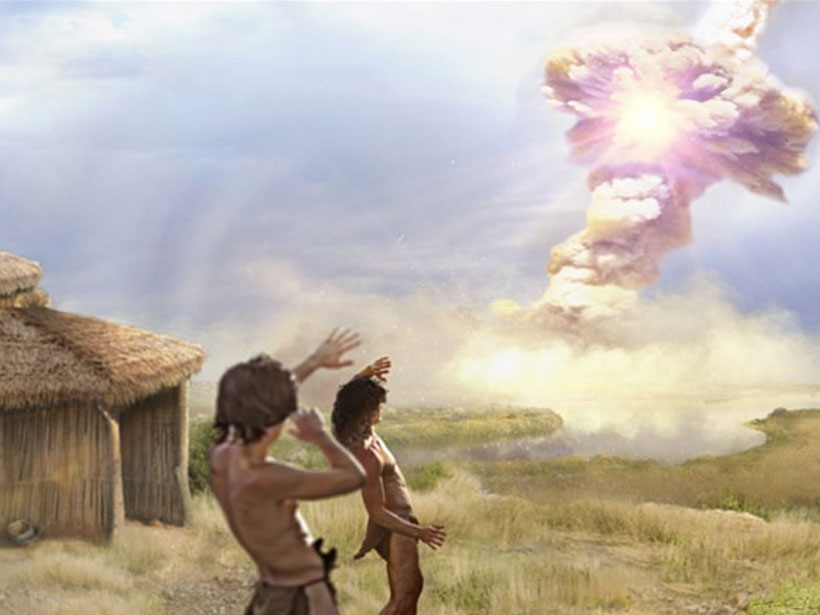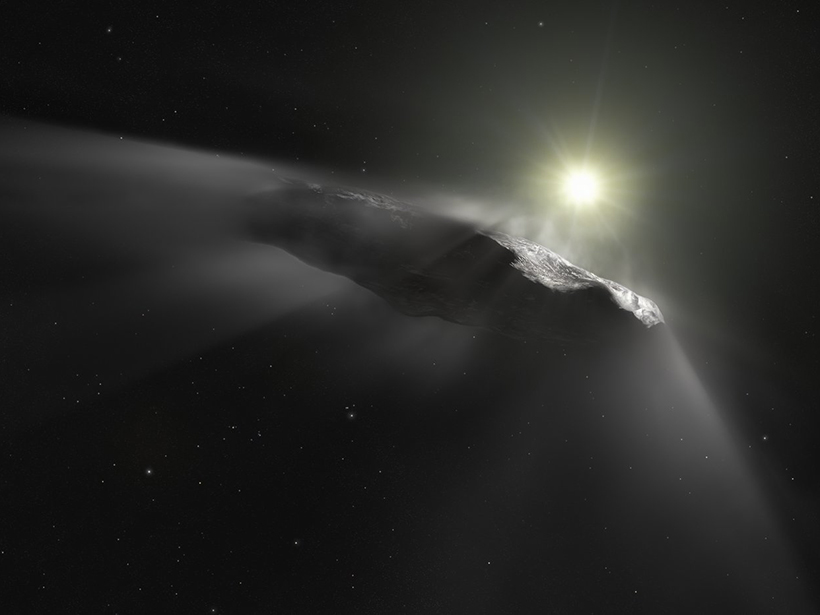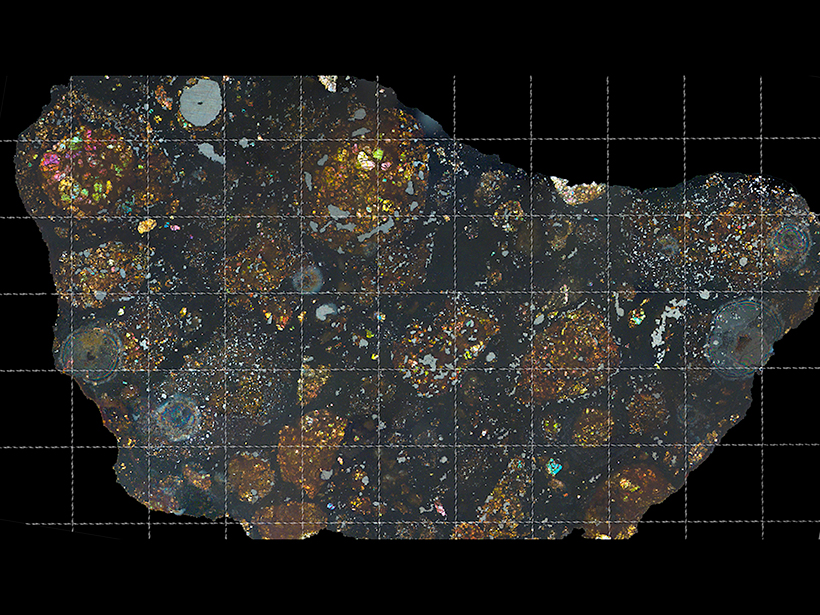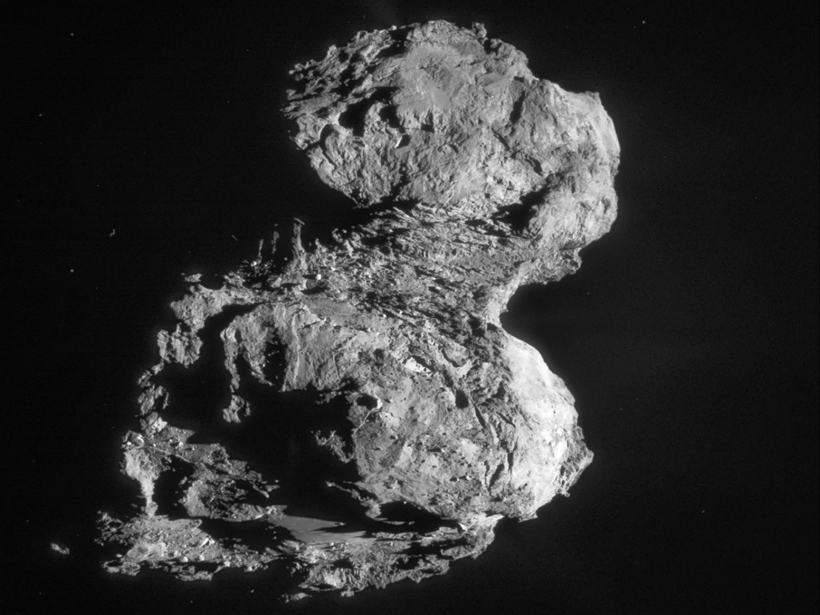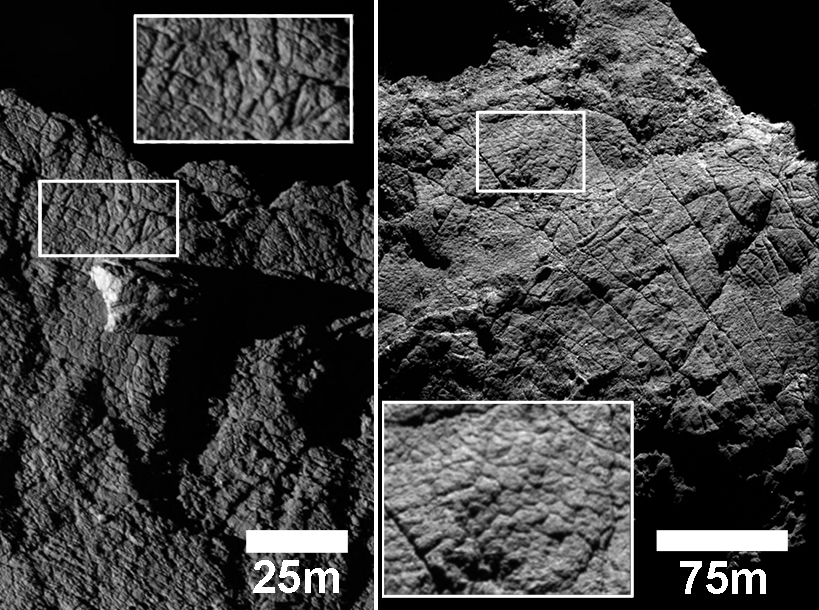Fragments of a comet likely hit Earth 12,800 years ago, and a little Paleolithic village in Syria might have suffered the impact.
comets
Interstellar Visitors Could Export Terrestrial Life to Other Stars
A handful of interstellar objects and long-period comets could have scooped up microorganisms from Earth and carried them to worlds around other stars.
Interstellar Interloper Borisov Looks Like a Regular Comet, for Now
A first look at the chemical composition of the interstellar comet Borisov reveals ingredients that look a lot like those found in solar system comets. That’s not likely to last very long.
Meteorite’s Hidden Treasure: A Comet
A fragment of a comet found hidden inside a meteorite is offering new insights into the dynamics of our young solar system.
More Discoveries in the Cards from Defunct Comet Mission
A year after the end of the Rosetta mission, the real scientific fun begins.
Cracking Comet: A Window to the Past
An unusual feature on comet 67P/Churyumov-Gerasimenko offers insights into cometary origins.
Rosetta Spacecraft Death-Dives into Comet Companion—On Purpose
On the way to its demise, the probe intimately viewed a dust-spewing pit and measured close up the gravity field, temperature, and other features of the comet.
Comet with Stunted Tail Hints at How Solar System Formed
Finding out whether just a few or many of this newfound type of rocky object roam deep space should help scientists sort among contrasting scenarios of the solar system's infancy.
Cracks on Comets Most Likely Caused by Thermal Stress
Networks of cracks in the surface of 67P/Churyumov-Gerasimenko may have originated from rapid heating and cooling of the comet's surface.
McEwen Receives 2015 Whipple Award
Alfred McEwen will receive the 2015 Whipple Award at the 2015 American Geophysical Union Fall Meeting, to be held 14–18 December in San Francisco, Calif. The award recognizes an individual who has made an outstanding contribution in the field of planetary science.

